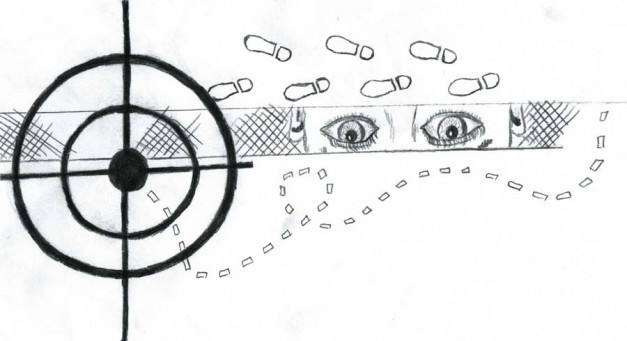Forum
What the court couldn’t do
In a unanimous decision on Tuesday, the Supreme Court made one of its biggest rulings in recent history regarding Americans’ right to privacy. In the case of United States v. Jones, the Court ruled that Antoine Jones, who had been convicted of drug trafficking based on information acquired from a GPS device placed on his car without his knowledge or a warrant, had his Fourth Amendment right to privacy violated. Therefore, the case against him was invalid.
While this unequivocally is a victory for the American citizen’s right to privacy, the decision in this case does not protect a person’s right to privacy as much as you would expect. Justice Scalia wrote the five-judge majority opinion (which the remaining four justices concurred with) stating that Jones’ case had to be thrown out solely because the placement of the GPS tracker constituted a search. Because it was an illegal search in his home without a warrant, Jones’ case was invalidated. That’s it. Placing a GPS tracker on your car is considered a search.
It is certainly important that the Supreme Court established that GPS tracking of vehicles is clearly a search, as defined under the Fourth Amendment and therefore subject to its limitations. However, this case opens up an entirely new can of worms in relation to an American’s right to privacy in this digital age.
The issue that remains conspicuously absent from Scalia’s opinion is whether or not such a search requires a warrant. Only future cases put before the Supreme Court will decide this. With Scalia and four other Supreme Court justices finding that the only thing that caused Jones’ case to be invalidated was the illegal “search” by law enforcement, later cases put before the court could uphold the use of GPS tracking devices on cars for short (i.e. a few days) or long term (a few weeks, such as in Jones’ case) without a warrant, if there is “probable cause” for such a search.
Though the concurring opinion written by Justice Alito took a stronger stand about the importance of citizens’ right to privacy, it, too, stated that as long as a tracking device is only used for a short period, people may not have a “reasonable expectation of privacy.” Therefore, law enforcement would not need a warrant to attach a GPS to your car and monitor your movements. The implications of such an idea are frightening. Forfeiting our right to reasonable privacy when we leave our homes, even in certain cases, sets a dangerous precedent for the future of American citizens’ privacy.
Something else the court did not take into account in its ruling is that the tracking of vehicles reveals more than just a location; it reveals where you go, your habits and who you’re meeting with. Are you really prepared for the government to know everyone you are interacting with?
The one justice who genuinely seemed worried about the precedent set by this case was Justice Sotomayor. Although she was one of the four judges who agreed with Scalia’s majority opinion, she also wrote her own concurrent opinion in which she expressed her worries about the erosion of an American’s reasonable right to privacy created by this case. She also voiced her dislike for other forms of wireless tracking, such as OnStar, that could be used without a warrant. The opinion didn’t mention what occurs when the information is freely offered by companies like car makers and your cell phone provider that have access to the information.
Just because we are starting to live in an age where civil liberties become harder and harder to protect does not mean that we can simply abandon them. Yes, this court decision is a good first step; we can’t be tracked without a warrant…in some cases…maybe. That’s heartening to hear. But over the next ten years, more and more cases like this are going to be decided, and not every one might go in our favor. When those cases come up, we have to be ready at a moment’s notice to argue for what we believe in and make sure that the civil liberties we hold dear are protected.

